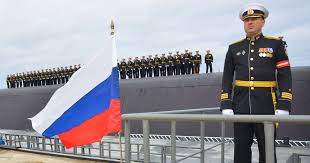Russia Accuses U.S. of 'Destructive' Stance on Nuclear-Test Ban Treaty

Russia's foreign ministry accused the United States on Tuesday of taking a "destructive" stance over the Comprehensive Nuclear-Test Ban Treaty (CTBT) and of preparing for a possible resumption of nuclear testing.
Moscow, which ratified the CTBT 20 years ago on Tuesday, said the non-proliferation and arms control regime was facing serious challenges and urged Washington to reconsider its position. It said the situation around the CTBT was "seriously deteriorating".
"Russia is calling on ... above all the United States to reconsider its position and 'give the green light' to transform this most important agreement from the point of view of global security into a fully functioning international legal instrument," the foreign ministry said in a statement.
The United States has denied Russian accusations in the past that it intended to quit the CTBT on the pretext that Moscow was violating it first.
Washington, which formally withdrew from the landmark Intermediate-range Nuclear Forces Treaty in August 2019, has signed but not ratified the CTBT, along with seven other countries.
It complies with the treaty’s prohibition on nuclear explosions by observing a unilateral moratorium on testing, which U.S. President Donald Trump’s administration has said will continue.
Photo: SEVERODVINSK, RUSSIA - JUNE 12, 2020: Russian Navy officers are seen during a ceremony to commission the Russian Navy's Knyaz Vladimir Borei A-class nuclear submarine (Project 955A). The submarine will enter service with the 31st Submarine Division of Russia's Northern Fleet. Sevmash Shipbuilding Company/TASS (Photo by Sevmash Shipbuilding CompanyTASS via Getty Images)
Link: https://www.nytimes.com/reuters/2020/06/30/world/europe/30reuters-russia-usa-nuclear.html











